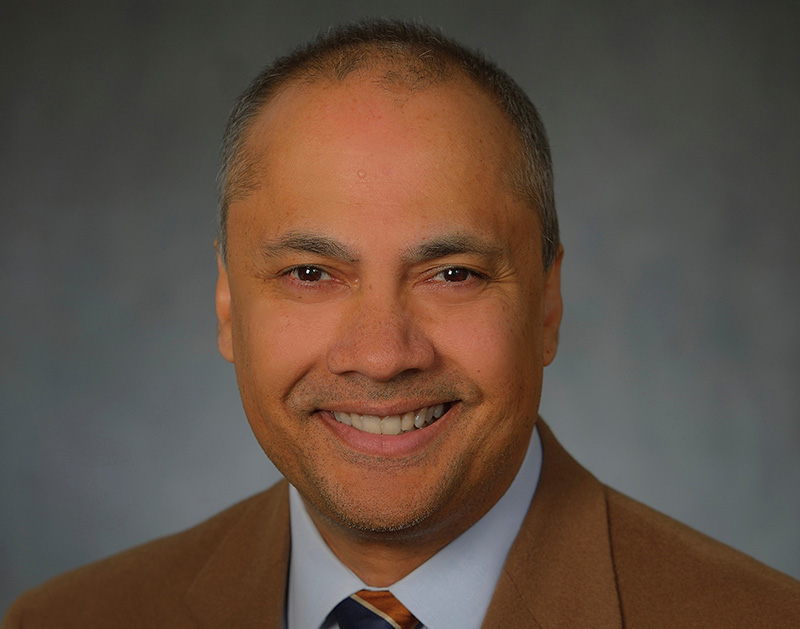Mather's dedication to health boosting Philadelphia communities

Some people might rest on their laurels after helping get a citywide sugary beverage tax passed that led to sweeping health improvements.
Not Dr. Paul Mather.
For one thing, the Philadelphia cardiologist remains vigilant about the beverage industry's efforts to overturn the 3-year-old tax, which research suggests cut adults' monthly soda consumption by 31% and children's daily sugar intake by 22%.
For another, he spearheaded an effort at a West Philadelphia church to address social determinants of health – conditions where people live, learn, work and play that affect their health risks and outcomes. He's also seeing patients, many of whom have heart failure or have received a heart transplant, making them particularly susceptible to complications if they contract COVID-19.
As a vigorous champion of heart health for his patients and his community, Mather has been named the American Heart Association's 2020 Physician of the Year. He will be honored at a ceremony in Dallas in October.
Mather is a professor of clinical medicine in the Division of Cardiovascular Medicine at the University of Pennsylvania's Perelman School of Medicine. He first volunteered with the AHA because he was grateful the organization had funded his research as a young investigator in 1993. He also believed in the AHA's public health mission.
Everyone is shaped by their upbringing and their environment, according to Mather, who was twice president for AHA regional boards of directors.
"To me it's very important to give back to the community and to be very cognizant of the needs of the community," he said.
In Philadelphia, an estimated 1 in 5 children and more than 1 in 3 adults are obese. One-third of adults have high blood pressure, and 12% have diabetes. In prepared testimony in 2017 supporting the beverage tax, Mather noted that he "sees firsthand the effects of chronic diseases such as heart disease and diabetes, exacerbated by overweight and obesity."
Poverty also is a factor. Research shows low-income Americans are more likely to be diagnosed with heart disease than those with high incomes.
At Victory Christian Church in West Philadelphia, one of the city's high-poverty areas, Mather worked with other health care professionals who checked local residents' blood pressure and taught them about diabetes, nutrition, exercise and yoga. The church even established a farmer's market to promote healthier eating.
Providing better health foundations and building resiliency can help people better weather health challenges, including those posed by the COVID-19 pandemic.
"If you address the social determinants of health, then basically what you create is a buffer that's there when people's lives start unraveling because of illness," Mather said. "And it's hard enough when you have that buffer. Can you imagine when you don't?"
In addition to reducing soda and sugar consumption, Philadelphia's beverage tax, the first by a major U.S. city, has raised more than $200 million to fund prekindergarten programs and community improvements, like upgraded parks – social factors that also can contribute to healthier communities.
Such areas may seem a bit afield for the AHA, which is best known for funding cardiovascular research by leading scientists worldwide. But it's not, according to Mather.
"We have to do both, not just one or the other," he said. "We are the American Heart Association, and we will focus on research and on cardiovascular and brain health, but access to healthy food is another aspect of preventing cardiovascular disease and stroke. So is exercise and health literacy. All those things are important."
The coronavirus crisis has highlighted the importance of addressing racial and ethnic health inequities, he said, noting that blacks, Latinos and others have been disproportionately affected by COVID-19. He's hopeful, though, that the pandemic will spur people to rethink what it means to be human and a member of a community.
"I think we are obligated to make each other's lives as good as possible," Mather said. "Nothing can make our lives or the lives of other people more beautiful than perpetual kindness. It's not something people talk about, but I think that's at the root of who we are and who we can be."
The AHA will recognize Mather at an awards ceremony Oct. 27. The event will be livestreamed here.





